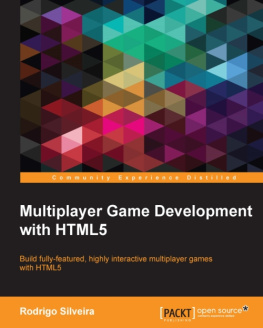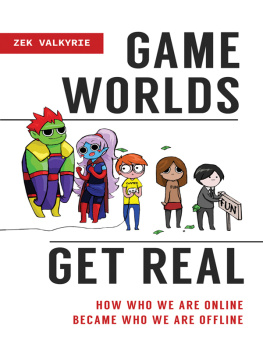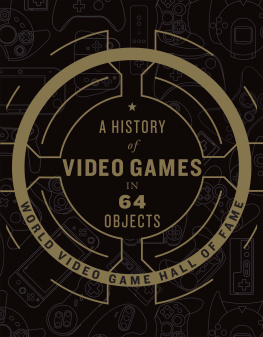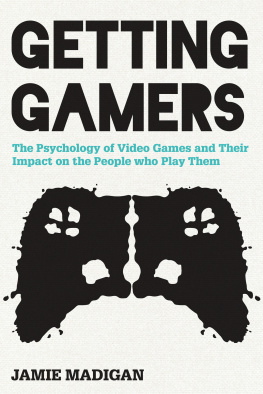First published 2012 by Left Coast Press, Inc.
Published 2016 by Routledge
2 Park Square, Milton Park, Abingdon, Oxon OX14 4RN
711 Third Avenue, New York, NY 10017, USA
Routledge is an imprint of the Taylor & Francis Group, an informa business
Copyright 2012 Taylor & Francis
All rights reserved. No part of this book may be reprinted or reproduced or utilised in any form or by any electronic, mechanical, or other means, now known or hereafter invented, including photocopying and recording, or in any information storage or retrieval system, without permission in writing from the publishers.
Notice:
Product or corporate names may be trademarks or registered trademarks, and are used only for identification and explanation without intent to infringe.
Library of Congress Cataloging-in-Publication Data:
Rowlands, Timothy.
Video game worlds : working at play in the culture of EverQuest / Timothy Rowlands.
p. cm.
Includes bibliographical references.
ISBN 978-1-61132-067-1 (hardback : alk. paper)
ISBN 978-1-61132-068-8 (pbk.: alk. paper)
ISBN 978-1-61132-069-5 (ebook)
1. Video games. 2. Video gamesSocial aspects. I. Title.
GV1469.37.R69 2011
794.8dc23
2011026449
ISBN 13: 978-1-61132-068-8 (pbk)
CONTENTS
Chapter
PREFACE
A product of the cyberculture of the 1990s, I have long been fascinated with virtual realities and the alternate worlds they make possible. This book represents the culmination of nearly eight years of research on online, gaming communities. The current argument grew out of my doctoral dissertation in Justice Studies at Arizona State University (ASU). It was there, at ASU, that I built upon my earlier background in sociology and cultural anthropology by developing a broader understanding of social justice concerns and how they impact our experiences of everyday life, the media, and popular culture.
Though I stumbled into the virtual world years earlier, my ethnographic engagement with EverQuest began in early September, 2004, and slowly tapered off by August, 2006. During these twenty-three months of fieldwork, I began to play on one particular instance (server) of the game world as a participant observer, commuting almost every night from a computer in my home. Playing provided an ideal way to overcome problems of access within the hostile virtual environment. It also offered a way to see this world from the perspective of an insider. I began grouping with other players. Once I had become more integrated into the virtual world, I joined a small guild. Eventually, I would leave this guild to join a larger one, then repeat the process again many months later to join a small raid guild. While doing so, I not only observed what was going on around me, I also kept regular, systematic field notes. In these, I placed my emphasis on exploring the meanings, the definitions of the situations members use to make sense of the virtual world.
Complementing this ethnographic approach, I recognized the need for a set of tools oriented toward reading the crafted environment of the virtual world. To this end, I turned to resources offered by semiotics. Understanding that my study of EverQuest could be fruitfully located within the tradition of the sociology of knowledge and media studies in the social construction of reality, I used semiotics as a way of identifying various frames and formats, common themes and orientations that rendered the underlying logic visible. Bringing these approaches together, this book presents a layered text that details the analytical models, and explains the often-complex phenomena I witnessed in EverQuest, while also offering rich, detailed narratives that flesh out these accounts.
: In the introduction, I provide context for this study by identifying what I have come to see as the central tensions within the virtual world of EverQuest and how the open space of virtual possibility has been shaped and constrained by the profit motives of the empire of the hyperreal.
: To illustrate the emergence of the dominant strategy, I provide a more detailed introduction to what play in EverQuest is actually like on an everyday basis through the use of a series of vignettes drawn from my ethnographic field notes. This chapter maps the ways the emergence of this dominant strategy and game culture was the result of an ongoing dialogue between the vocal minority of players and the games designers.
: In The Holy Trinity camp group, I explore how the Holy Trinity came to epitomize the particularities of the dominant strategy. Additionally, through detailed descriptions and interviews with informants, I provide an exploration of how new players coming to EverQuest are taught the social norms of this world.
: In A Textual Reality, I begin the analytic task of exploring the phenomenon in which EverQuest players collectively negotiated the rules of the game and produced a game culture, which in effect, severely limited the ways that the virtual world could be used. By turning to a discussion of the processes of habituation and institutionalization, I offer a new take on the idea that play in massively multiplayer online games (MMOs) is becoming work-like. Elaborating on this idea, I propose that it has become more institutionalized with the risk of exclusion from the games community used as leverage to legitimate and normalize this situation.
: This chapter builds off the idea that the social practices in EverQuest can be usefully understood as institutional. The membership career adopts and adapts Erving Goffmans concept of the moral career of a mental patient to describe the stages an EverQuest player goes through as a member of the game culture. In doing so, I aim to show how the values of end-game raiders began to disseminate amongst the entire player population, eventually obscuring other ideas of how the game could be played.
: Continuing the analysis, I apply a semiotic approach, which turns to the text of the game as myth, reified cosmology, in order to understand the relationships that emerge among and between players and the virtual world. Playing at Empire looks at how the virtual world in EverQuest is functional rather than representational and how it is a virtual theme park rather than a complex historical simulation. In doing so, I argue that the way players actions are to be understood is through a rule of exception and a doctrine of virtuous war in which good should always destroy evil. However, rather than merely posing players as soldiers and as agents of social control on the frontiers of their fantasybased world, I connect their martial interventions to the interests of an implied global economic system, MIME-NET.



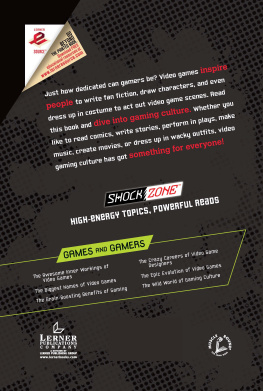
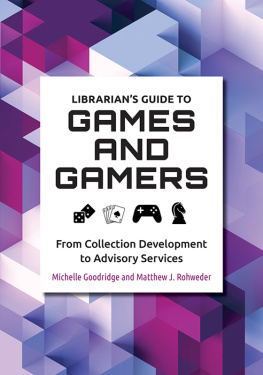
![Mark J. P. Wolf (editor) - Encyclopedia of Video Games: The Culture, Technology, and Art of Gaming [3 volumes]](/uploads/posts/book/279290/thumbs/mark-j-p-wolf-editor-encyclopedia-of-video.jpg)

